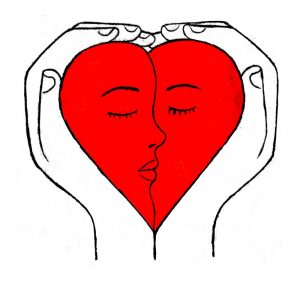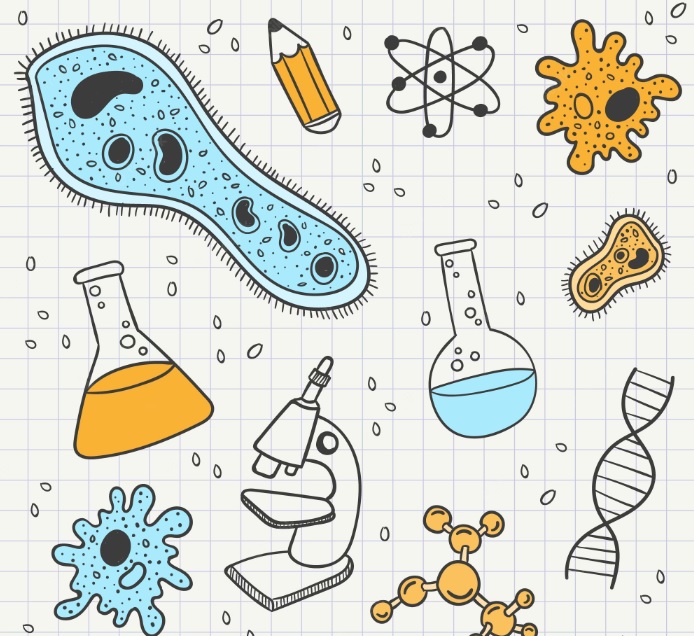Do you want Sex Happiness in your Life?
It’s a big statement, but I can’t honestly think of any reason why people wouldn’t use sex toys in their sex lives!
Placing absolute faith in your sexual satisfaction in your partner is both admirable and sweet. It is also highly unrealistic and can cause undue stress because of expectations to perform or enjoy.
Sex Happiness
Sex is the art of a human being’s passion and love in whatever form that may take. Sometimes that’s simply is not enough.
Why wouldn’t you want to enjoy it as much as possible and in a variety of ways?
Sex toys in both solo and partner play can accomplish this. There is nothing worse than a couple that has been together a long time and sex has become boring! A boring sex life can also lead to other relationship issues that could have a terminal effect.

Sometimes We Just Need a Little Help
As we age, our bodies don’t respond to things as well. In the case of boys, some things just no longer stand to attention or go the distance.
Erectile dysfunction can put a dampener on any sexual relationship. Shifting some of the sexual pressure off the man and onto an pleasure object including your partner can help. Then hopefully there will no longer be boredom but a new appreciation of sex.
Why Use Sex Toys for Sex and Happiness?
You may understand why Sex Toys are important for your sex life and well-being!
With sex, we get comfort and pleasure both physically and mentally. It is also a release and will reduce stress. Those lovely endorphins flying around will also make you feel better.

It will be great to rekindle that spark and be intimate with that special someone.
A Sex Toy can also help when you do not want to be with someone. When you are arguing and do not even want to be in the same room. Using a sex toy in these sorts of situations will hopefully ease the tension of those times too!
When You’re Feeling a Little Lonely…
Sometimes, despite being surrounded by people we can feel a little lonely.
At times like this, sex toys make a great recovery tool to help us get back on track! Whether it’s mens sex toys, or vibrators or dildos for women or even a bit of both, it all helps.
Many people take this erotic path to give them pleasure either with someone or without someone. There are a lot of adult sex toys available in the market. They come in a variety of different shapes and unique structures all with user comfort in mind.
An explanation for such a diverse range of pleasure objects on the market is simple.
Human beings crave happiness and pleasure.
Sex toys help to produce that. Sex Happiness can be achieved by using them.

Maintaing Sexual Desire
Men and women have a lots of sexual desires.
When a relationship first starts our these carnal desires make each partner want to satisfy the other fully. They explore the majesty of each other both physically and mentally. Generally there is no problem achieving both Sex and Happiness.
How about after a couple of years?
You start to see each others shortcomings and flaws. You have tried all the positions. Now almost every time it is done in missionary or whilst spooning each other. This can sometimes feel boring to one or both but it does not need to be so.
It is time to ramp up your sexual styles and explore those adult sex toys.
There is so much out there! Vibrators, sex toys, masturbators, prostate stimulators, cock rings, penis pumps, clitoral massager, BDSM gear. Many more erotic and fun sex toys. T
So many companies offer a huge range of adult products. They’re sourced from all over the world. Newest and greatest toys that are continually evolving.
Explore your sexual desires with the knowledge that you are shopping safely and securely. Thousands and thousands of products are out there for you. Consider sex toys at Adultsmart and help grow renewed desire, passion and fire to your partner.

I Can’t Get No Satisfaction…
Truth be told there are many men and women that are discouraged after sex. They may not have been able to satisfy their partner. Or become frustrated during sex because they are not satisfied.
There is a name for this and it’s called post-coital tristesse (PCT).
It originates from the Latin expression post-coital and the French word tristesse. It truly signifies “trouble”. Many individuals who experience PCT will encounter distress, tension, or uneasiness before or after after sex. Often lasts more than 2 hours after.
Why would you allow this to continue when there is a solution?
Most relationship and sex therapists will endorse the use of sex toys in a relationship. Isn’t it time that you were proactive? Bring them into your sexual play and lets get back to that Sex and Happiness.
Your own body produces natural dopamine and endorphins during and after good sex. This should bring you to a better place -not one of unhappiness. Sex and Happiness can be achieved with dopamine surging through your body. You should feel relaxed, satiated and a sense of well being after good sex.
Let go of your apprehensions! Learn how to introduce sex toys into your relationship.
Both you and your lover will be thankful. Discover enhanced arousal and sexual desires with the use of sex toys.
Sex Happiness and the Science of Love.
Understanding the Biological Basis of Our Emotions
Love is one of the most powerful emotions we experience as humans. It is difficult for anyone to defince Science of Love. It’s a feeling that can be so intense that it can make us feel like we’re on top of the world. Or it can leave us feeling shattered and broken. We all crave to experience the feeling of being in love.
Have you ever wondered what happens in our brains and bodies when we fall in love?
What is the biology behind the emotion that has been the inspiration for countless poems, songs, and novels? Let’s delve into the fascinating world of the science of love. Explore the latest research on what happens in our brains and bodies when we fall in love.
The Biological Basis of Love
Love is not just an abstract concept or a social construct. It is complex biological phenomenon with a deep-rooted evolutionary history.
From an evolutionary perspective, the primary function of love is to help us form strong bonds with a partner. This ensures survival and success of our species. This is not limited to reproduction. It involves a complex interplay of neurotransmitters and hormones in our brain and body.

Love and the Brain: The Role of Neurotransmitters
When we fall in love, our brain releases a cocktail of neurotransmitters that can have a profound impact on our emotional state.
One of the most important neurotransmitters involved in love is dopamine. Dopamine is often referred to as the “pleasure hormone” . It’s associated with feelings of pleasure and reward. When we fall in love, our brain releases dopamine. This makes us feel happy and motivated to pursue the person we’re in love with.
Another neurotransmitter involved in love is serotonin. Serotonin is often associated with feelings of happiness and well-being. It plays a crucial role in regulating our mood. Our brain releases serotonin, which can make us feel calm and content in the presence of our partner.
Finally, the neurotransmitter norepinephrine is also involved in love. Norepinephrine is often associated with the “fight or flight” response. It can make us feel anxious and nervous. When we fall in love, our brain releases norepinephrine. This can make us feel jittery and excited in the presence of our partner.
The Role of Hormones in Love
Hormones also play a crucial role in love. One of the most important hormones involved in love is oxytocin. Oxytocin is often referred to as the “love hormone”. It’s associated with feelings of closeness and intimacy.
When we fall in love, our brain releases oxytocin, which can make us feel deeply connected to our partner.
Another hormone involved in love is testosterone.
Testosterone is often associated with aggression and dominance, but it also plays a crucial role in our sex drive. Our testosterone levels increase, which can make us feel more sexually attracted to our partner.
Finally, cortisol is also involved in love. Cortisol is often referred to as the “stress hormone”. It’s associated with feelings of stress and anxiety. When we fall in love, our cortisol levels can increase. This makes us feel anxious and nervous about the future of our relationship.
The Psychology of Love: Attachment Styles
Our experience of love is significantly impacted by our psychology. Our attachment style is determined by the relationships we had with our caregivers as children.
There are four main attachment styles.
-
Secure
Characterized by a positive perception of oneself and others.
-
Anxious-preoccupied
An anxious-preoccupied attachment style, on the other hand, is characterized by a negative self-view and a positive perception of others
-
Dismissive-avoidant
This is marked by a positive self-perception and a negative perception of others.
-
Fearful-avoidant.
A fearful-avoidant attachment style is defined by a negative perception of both self and others.
The Impact of Early Life Experiences on Love
Our early life experiences can also have a profound impact on how we experience love as adults. Research suggests that individuals who experienced insecure attachment in childhood are more likely to have difficulties forming and maintaining healthy relationships in adulthood.
In addition, individuals who experienced trauma or abuse in childhood may also have difficulties forming healthy relationships.
It’s important to note that our early life experiences don’t have to dictate our future.
With the help of therapy and self-reflection, we can work through our past traumas and develop the skills we need to form healthy relationships.

The Science of Heartbreak
Falling in love can be an incredible experience. But the end of a relationship can be devastating. Science of heartbreak suggests that the emotional pain we experience after a breakup is not just in our heads. It has physical basis as well.
When we experience heartbreak, our brain releases cortisol. This makes us feel stressed and anxious. In addition, our brain also releases opioids, which are associated with feelings of pleasure and reward. It can create an addictive cycle.
We crave the person who broke our heart. Even though they may not be good for us.
Love at Different Stages of Life
Love is not just limited to young adults. In fact, love can be experienced at any stage of life, from adolescence to old age. The way we experience love may change as we age.
Research suggests that older adults may be more likely to value companionship and emotional intimacy over physical attraction. Also older adults may also have different priorities when it comes to relationships like financial stability.
The Future of Love: Technology and Relationships
Finally, the future of love is also being shaped by technology. With the rise of dating apps and social media, the way we form and maintain relationships is changing.
Technology can make it easier to connect with others. It can also create new challenges and complexities.
Research suggests that the “paradox of choice” can make it harder to form meaningful relationships in the digital age. With so many options available, it can be difficult to commit to one person and invest in a relationship.
The Importance of Understanding the Science of Love
Science of love is a complex and fascinating topic. It has the potential to teach us a great deal about ourselves and our relationships.
By understanding the biological and psychological mechanisms behind love, we can gain insights into how our bodies and minds work. We can better navigate the ups and downs of romantic relationships.
Whether experiencing the thrill of falling in love, the pain of heartbreak, or the comfort of a long-term relationship, the science of love can help us make sense of our emotions and experiences.
By embracing the science of love, we can cultivate deeper connections with ourselves. We can create more fulfilling and meaningful relationships.

Roulla was a contributor on the adultsmart blog in 2014. She has since returned to her homeland in Greece where she has taken up a career in hairdressing. We wish her well.








Leave a Reply